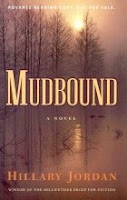Have you ever kept a secret? Have you ever been someone else's secret?
Secret families are not an uncommon theme in fiction; cheating and illegitimacy are motifs that crop up often as devices to engender conflict and rip open the seams of a happy-seeming family. François Mitterand, former president of France, famously had a mistress and a child with her who would openly identify herself as the daughter of the president. I think in real life such things are maybe less common, and when they do happen, those involved probably keep the secret better.
I can't recall any novels on this theme in particular but it seems to me that when I've seen this situation explored in movies of television, it's usually from the perspective of the wife or child who finds out about the second family. Author Tayari Jones takes the other tack in her beautiful and bittersweet Silver Sparrow, telling the story from both sides, and starting with the story of the secret child.
Jones sets the novel in 1980s Atlanta; Gwen Yarboro met James Witherspoon, married man, in a shop. The two have an affair and Gwen has a baby, Dana. Around the same time that Dana is born, James's wife gives birth to his other, "legitimate" daughter Chaurisse, but he maintains a relationship with Gwen, who tries to make sure he does right by both of his children. Dana knows about James's other family but at first, doesn't quite understand it.
"What happens in my life, in my world, doesn't have anything to do with you. You can't tell your teacher that your daddy has another wife. You can't tell your teacher that my name is James Witherspoon. Atlanta ain't nothing but a country town, and everyone knows everybody," [Dana's father tells her one day.]And with that her world changes. From now on she'll learn that her place in the world is, to an extent, to sit behind her half-sister, who will always come first in her father's heart. Dana can only have what Chaurisse doesn't want; they can't attend the same camp or school or activities. As she grows up, Dana becomes fascinated with Chaurisse and wants to get to know her, something both her parents forbid. When Dana learns that Chaurisse may have her heart set on attending Dana's dream college, things come to a head.
"Your other wife and your other girl is a secret?" I asked him.
He put me down from his lap, so we could look each other in the face. "No. You've got it the wrong way around. Dana, you are the one that's a secret."
The second half of the novel is from Chaurisse's point of view and tells what happens when the families collide. Seeing Dana through Chaurisse's eyes is jarring and poignant; the girls form a weird friendship colored with dramatic irony as long as Chaurisse doesn't know who Dana is. I turned the pages quickly, anticipating the clash and the fall-out I knew was coming. When Chaurisse, sheltered and ignorant, does find out the truth about her father and her friend, I hoped for a better ending for the girls but Jones gives us the one we'd probably get in real life instead, and I'm glad.
Silver Sparrow is a really terrific, moving, sad and wonderful novel. I didn't read it until I saw Jones read from it mostly because I didn't know what it was about. I found the plot and the presentation to be really fresh and engaging; she really gets to the heart of Dana and the resentment and anger that drives her to disrupt the very unfair position in which she's forced to live. It would be a great choice for book clubs for its emotional complexity and shattering ending. I really loved this book and I'm so glad I got a chance to read it!
Rating: BUY
FTC Disclosure: I did not receive this book for review.












